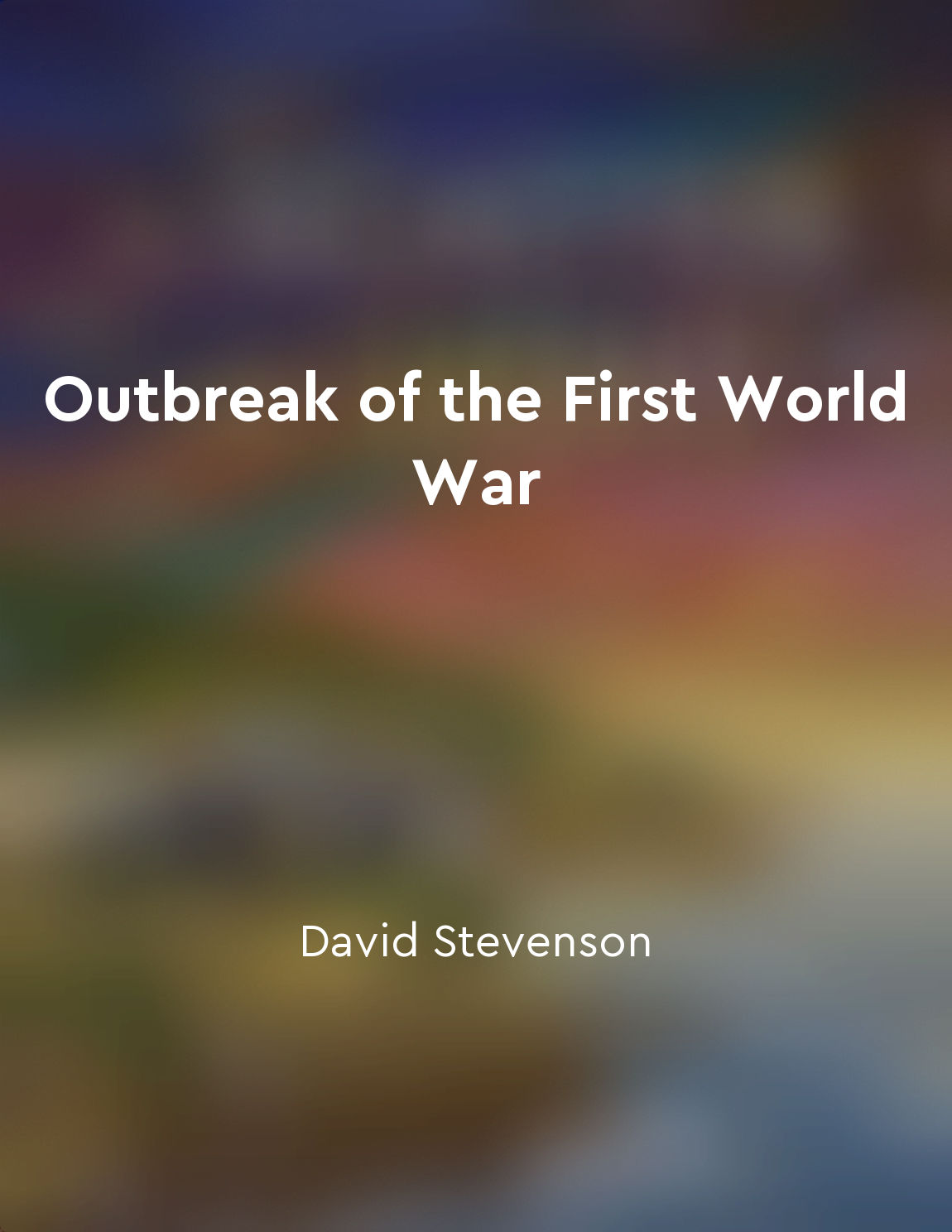Europe in early 20th century from "summary" of Outbreak of the First World War by David Stevenson
In the early 20th century, Europe was facing a complex web of political, social, and economic challenges that would ultimately lead to the outbreak of the First World War. The continent was divided into two main alliance systems - the Triple Entente, consisting of France, Russia, and Great Britain, and the Triple Alliance, consisting of Germany, Austria-Hungary, and Italy. Tensions between these alliances were high, and each country was looking to expand its power and influence on the world stage.
Militarism was a significant factor in European politics at the time, with each country heavily investing in their armed forces and building up their military capabilities. This arms race only served to heighten suspicions and increase the likelihood of conflict. Additionally, nationalism was on the rise in many countries, leading to increased competition and rivalries between nations.
The Balkans were a particularly volatile region in Europe, with various ethnic and nationalist groups vying for independence and territorial control. The assassination of Archduke Franz Ferdinand of Austria-Hungary in Sarajevo in 1914 was the spark that ignited the powder keg of tensions in the region, ultimately leading to the outbreak of war.
The outbreak of war in 1914 was not inevitable, but rather the result of a series of miscalculations, misunderstandings, and miscommunications between the major powers of Europe. The complex system of alliances and rivalries that had developed over the years meant that any conflict in one part of Europe could quickly escalate into a continent-wide war.
As the war progressed, it became clear that the traditional methods of warfare were no longer effective in the face of modern technology and firepower. The introduction of new weapons such as machine guns, tanks, and chemical weapons changed the nature of warfare forever, leading to unprecedented levels of destruction and loss of life.The early 20th century was a time of great instability and uncertainty in Europe, with competing interests and alliances threatening to erupt into open conflict. The outbreak of the First World War was the culmination of these tensions, and its impact would be felt around the world for years to come.

Open in app
The road to your goals is in your pocket! Download the Oter App to continue reading your Microbooks from anywhere, anytime.


